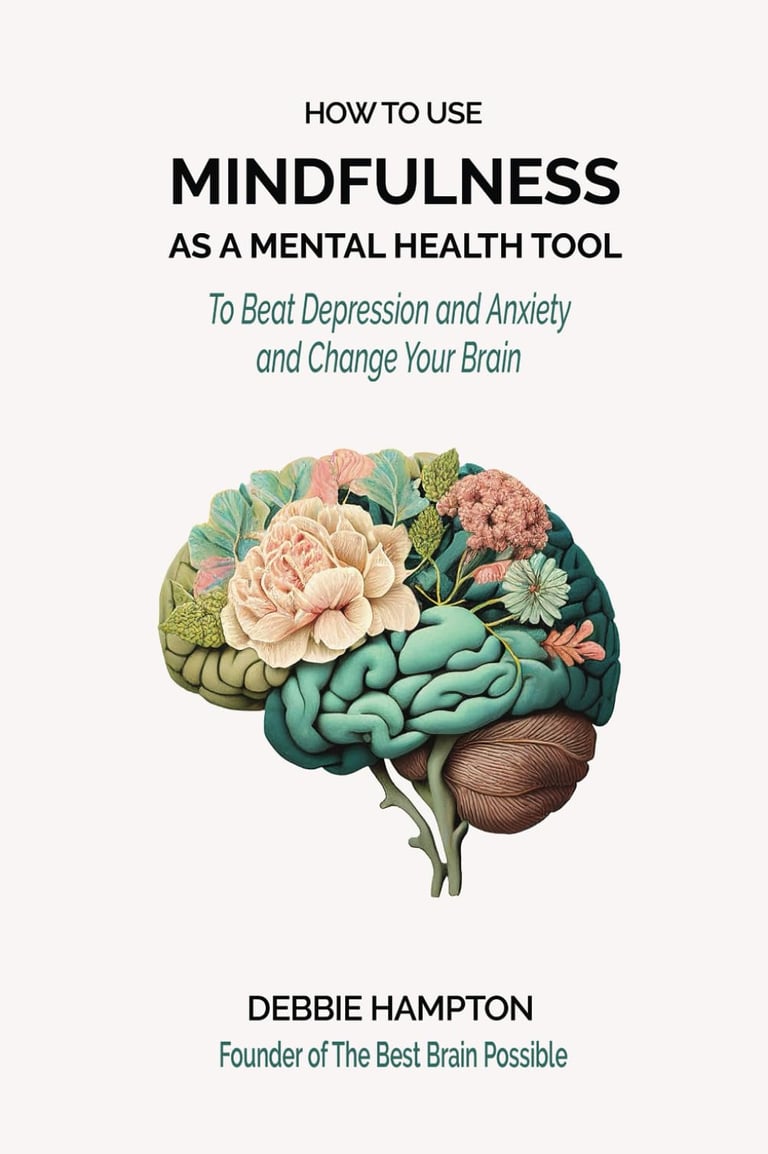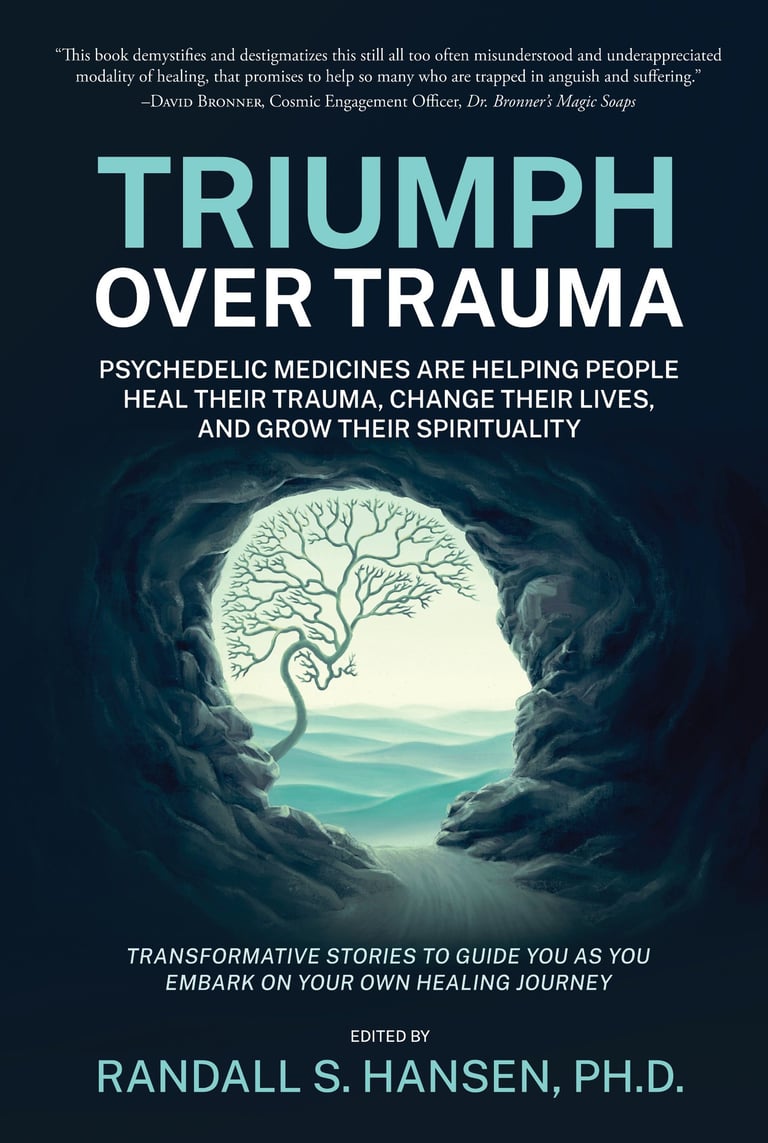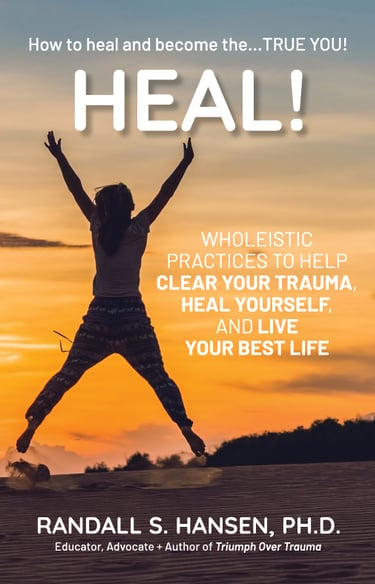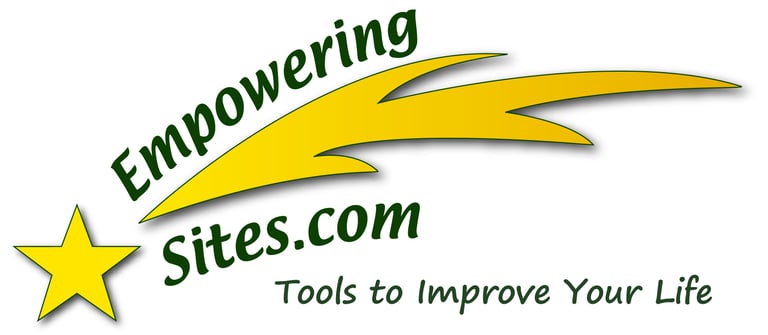Mindfulness Monday: Book Review of How to Use Mindfulness
How to Use Mindfulness as a Mental Health Tool: To Beat Depression and Anxiety and Change Your Brain, by Debbie Hampton. ISBN: 979-8856351087
Can you change your brain with just your thoughts? The answer is mindfulness. Can you stop sleepwalking or missing major chunks of your life? The answer is mindfulness. Can you shape your brain to think differently? The answer is mindfulness. Can you improve the quality of your life? The answer is mindfulness. Can you stop overthinking your past – or fretting about your future? The answer is mindfulness.
Mindfulness? No question the concept is trendy and talked about in the mental health and wellness areas. I discuss the importance of mindfulness as a healing practice in my book, HEAL! I state that mindfulness is “about objectively observing our world — with grace, compassion, gratitude, acceptance.”
We can talk about mindful breathing, mindful listening, mindful eating, mindful exercising, and mindful resting.
But mindfulness is so much more, as this book demonstrates. When you read the author’s story and witness how she recovered from a massive brain injury using mindfulness, you will be absolutely amazed. But Debbie’s story is only a small part of this book; the strength of this book lies in the detailed research and discussion of mindfulness, written in an easy style (and with lots of footnotes).
How to Use Mindfulness is 17 chapters long, and covers everything from explaining the details of mindfulness to how mindfulness can be used for therapy, increasing neuroplasticity, and for depression and anxiety, and includes several chapters on what I call “applied mindfulness” – including gratitude, compassion, and affirmations.
My Favorite Mindfulness Moments From Debbie Hampton's Book
Mindfulness is both a state of mind and a quality that you develop through practice. The more one practices mindfulness, the more the concept is brought to the forefront; and how over time, mindfulness can actually change brain patterns, mental health, and life overall.
Mindfulness includes a range of introspective practices, including meditation, yoga, and breathwork, as well as cultivating qualities of the heart – such as compassion, visualization, and thought reframing.
Mindfulness is not a mental health tool to get rid of all the difficult, messy, and uncomfortable feelings or memories you don’t want to face. It is a tool to help better navigate all the bumps in the road by teaching you to recognize, sit with, and work through your thoughts and feelings.
Mindfulness is a practice of focusing attention on the now so that you stop feeling numb or like you’re sleepwalking through your day. Mindfulness is about tuning in to things and being present for everything that happens in your day.
Mindfulness greatly reduces rumination – you know, those times (especially late at night for me) when you can’t stop thinking about something or some situation and you go around and around and around again; it’s exhausting and a waste of precious time and mental resources. Ruminating often contributes to anxiety and depression.
Mindfulness helps us become less reactive while increasing cognitive flexibility, which is the ability to move between different topics or ideas while allowing the ability to change your mind when given new information.
Mindfulness supports better physical health too -- lowering blood pressure, improving immunity while decreasing inflammation, reducing strokes, boosting mitochondrial functioning, and benefitting the gut microbiome.
Mindfulness can change your brain for the better through neuroplasticity by repeatedly switching the area of your brain that’s activated and in control. With mindfulness, the more you practice good brain habits, such as being calm, clear, and focused, the stronger those brain networks become.
Mindfulness is a practice, which means you will see some initial benefits; but the longer-term benefits will take work – consistent practice over time for true changes in the brain, and with that, changes in your default thinking patterns and behaviors.
Mindfulness helps you have compassion, kindness, and love for yourself – by helping you recognize your common connection to others, rather than feeling isolated or ashamed, overcoming any negative or criticizing thoughts.
Final Thoughts on How to Use Mindfulness as a Mental Health Tool
If you’re looking for an amazingly simple technique, backed by theory and science, to help you be more present, more focused, and a tool for keeping your mind calm as storm clouds abound, the answer is mindfulness.
And if you’re looking for a book that not only explains the concept and the many ways it can be used to improve your mental and physical health – with tons of examples and suggestions – then this is the book you need.
Author Debbie Hampton not only tells an amazingly powerful story of healing from her injuries, but she has written an excellent book that includes everything you need to start practicing mindfulness TODAY.
Dr. Randall Hansen is an advocate, educator, mentor, ethicist, and thought-leader... helping the world heal from past trauma. He is founder and CEO of EmpoweringSites.com, a network of empowering and transformative Websites, including EmpoweringAdvice.com.
He is the author of the groundbreaking Triumph Over Trauma: Psychedelic Medicines are Helping People Heal Their Trauma, Change Their Lives, and Grow Their Spirituality and the well-received HEAL! Wholeistic Practices to Help Clear Your Trauma, Heal Yourself, and Live Your Best Life.
Dr. Hansen's focus and advocacy center around true healing ... healing that results in being able to live an authentic life filled with peace, joy, love. Learn more by visiting his personal Website, RandallSHansen.com. You can also check out Dr. Randall Hansen on LinkedIn.








